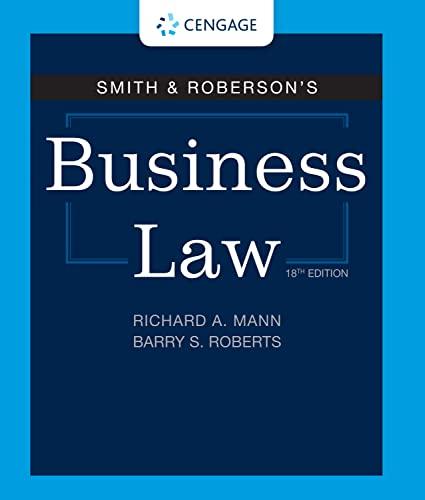Question
1. Read the case study presented Guido (7th ed) (Guido, p. 218) and provide a PowerPoint presentation to answer the following questions: Provide references of
1.
Read the case study presented Guido (7th ed) (Guido, p. 218) and provide a PowerPoint presentation to answer the following questions: Provide references of less than 5 years.
Case Study
The patient was seen by the NP in an outpatient clinic for persistent diarrhea, which the patient had been experiencing for a two-week period. The NP, after consulting with the clinic physician, started the patient on Flagyl, an antibacterial medication. Nine days later, the patient phoned the clinic, stating that the medication was making him feel worse, not better. He was instructed to continue with the medication. He collapsed at home the next day and was taken by ambulance to the emergency center where he died. The death certificate pointed to a cardiovascular event with hypertension as a contributing factor; no autopsy was performed. The patient's family sued the NP and the clinic for negligence. At the trial level, the medical expert for the family testified that the NP should have ordered a complete metabolic panel, sent a stool sample for analysis, scheduled a follow-up visit within 48 hours, and taken into consideration that Flagyl can enhance diarrhea.
Questions
- How should the expert witness for the defense offer testimony that the NP and the consulting physician had met the standards of care for this individual patient?
- Did not having a full autopsy impact the outcome of the case either for or against the NP and the clinic?
- Would the care of this patient have been positively impacted by a more thorough examination of the patient's gastrointestinal problems?
- How should the court decide on the issue of negligence?
2
Read the case study Guido (7th ed) (Guido, p. 328-329)presented and provide a PowerPoint presentation to answer the following questions: Provide references of less than 5 years
Case Study
A licensed practical nurse (LPN) who worked for a nursing personnel agency worked one evening shift at the Veterans Administration Hospital in a major city. She cared for a patient who had recently undergone hip replacement surgery. Since his surgery, the patient had consistently spiked significant temperatures, but his temperature generally responded well to oral Tylenol, 500 mg, tabs ii, every four hours as needed. The change nurse explained to the LPN that the patient was to continue on every-four-hour vital signs, including temperatures, and that he was to be medicated if his fever increased, even if only at low-grade levels. During the evening that she worked, the LPN obtained the patient's temperature at 4 P.M. and again at 8 P.M. He had a low-grade fever at the 4 P.M. hour, and his temperature had risen to 102 degrees orally at 8 P.M. At both intervals, the LPN administered Tylenol as ordered. The charge nurse did not assess the patient during the evening, nor did she inquire about the patient's condition. The nurse caring for the patient at midnight noted that his temperature was still elevated (102.4F orally). When notified the attending physician ordered blood cultures, additional treatment for his ever-increasing fever, and a change in antibiotic therapy. Despite this aggressive therapy, the patient developed a fatal septicemia, and the patient's family sued for wrongful death. At trial, the court determined that the charge nurse had been derelict in her duty to supervise this patient and assessed partial liability against the LPN and the charge nurse.
Question
- Did the nurse manager have a responsibility to supervise the care of the patient?
- Was the care of this patient appropriately assigned to the LPN by the charge nurse, or could the charge nurse have delegated this patient's care more appropriately?
- If the charge nurse assigned the care of the patient to the LPN, did she retain any supervisory responsibility that would result in her liability in this case?
- How do the principles associated with delegation and supervision figure into this case?
- How would you decide this case?
Step by Step Solution
There are 3 Steps involved in it
Step: 1

Get Instant Access to Expert-Tailored Solutions
See step-by-step solutions with expert insights and AI powered tools for academic success
Step: 2

Step: 3

Ace Your Homework with AI
Get the answers you need in no time with our AI-driven, step-by-step assistance
Get Started


